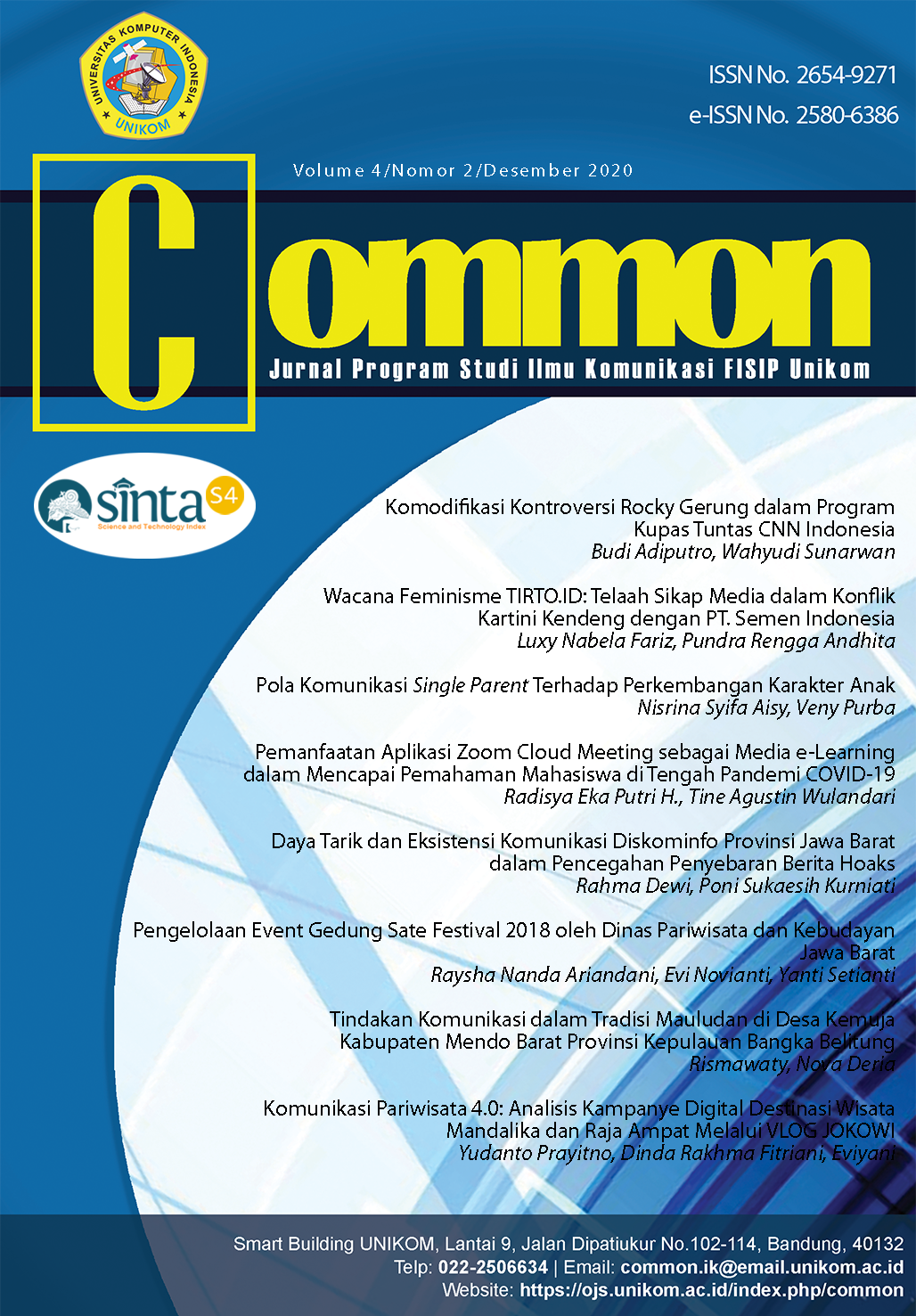TINDAKAN KOMUNIKASI DALAM TRADISI MAULUDAN DI DESA KEMUJA KABUPATEN MENDO BARAT PROVINSI KEPULAUAN BANGKA BELITUNG
Main Article Content
Abstract
This research was conducted to explain the communication actions in the Mauludan Tradition. The focus of the problem in this study is how the orders, statements, requests, and non-verbal behavior in the Mauludan Tradition in Kemuja Village.
The research method used is a qualitative research method of communication ethnographic studies. The research subjects were the Kemuja Village Community and the number of research informants was 6 (six) people obtained through the snowball techniques and purposive sampling. Data collection techniques through reference books, previous research, internet searching, participant observation, in-depth interviews, and documentation.
The results showed that the people of Kemuja used Bangka Malay as a means of communication. Communicative actions contained in the Mauludan Tradition are the Actions of command: men are obliged to wear Muslim clothes when performing, Statements actions: bring food to the mosque for 2 consecutive days, Action of Request: as a form of gratitude and thanks to Allah SWT and as a respect for ancestors so that their lives are always on the right path. Non-Verbal Behavioral Actions: shaking hands with others as a form of apology and forging ties of friendship, carrying food from house to mosque as a form of mutual cooperation, gratitude for sustenance and sharing, wearing Muslim clothes and fragrances as a form of respect. The act of communication at the Mauludan event must continue to be celebrated so that people's lives are blessed to increase their faith and can continue to maintain cultural authenticity.
The conclusion of this research is that the Communication Actions in the Mauludan Tradition in Kemuja Village runs in a solemn atmosphere and there is an exchange of certain symbols such as in the nganggung activities, the clothes used, and other accessories.

